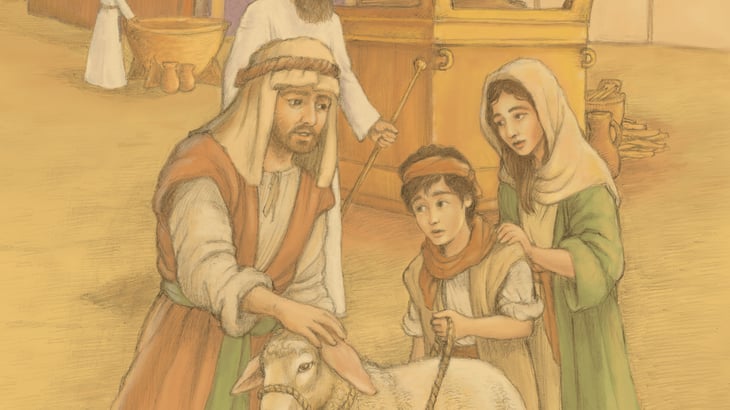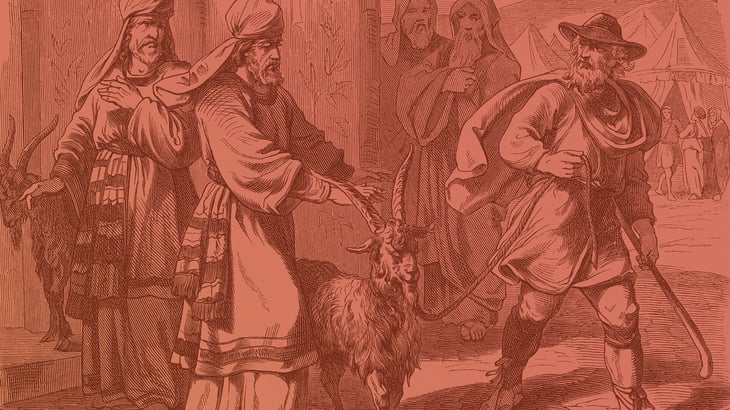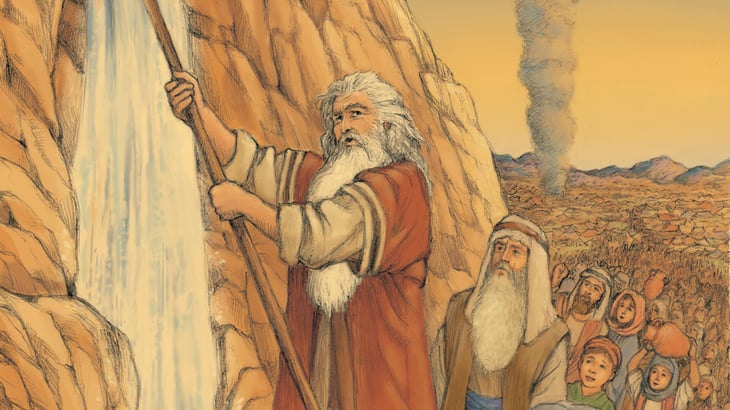Teaching Jesus in the Old Testament: Joshua 2
A book I read recently suggests that, given the increased use of electronic media (television, cell phones, social media, iPad, the internet) our collective attention span has shrunk. Although we might like short commercials, the fifteen-second ads of recent years have decreased our ability to remain focused on a particular point. News briefs move from one to another at lightning speed. The internet moves information across our computer screens as quickly as we can absorb it. This ease of access to information has also affected our capacity to recall information because our brains are in a constant state of saturation.
Become a Lifelong Learner of God’s Word
When you hear the word learning, what comes to mind? I’m guessing that one of the first things you think of is school. You might recall memories of classrooms, teachers, desks, and long days of sitting and listening or reading. You may think of hours of homework, peer pressure, growing up, and grades. I’m also guessing that not all your memories of “learning” are positive ones.
Law and Gospel in the Classroom
The Lutheran school system is a strange place, theologically speaking. It stands in the gap between a world of rules and a world of forgiveness. Following the scriptural insights of Martin Luther, we understand that God governs our culture according to what are traditionally referred to as the two kingdoms.
Teaching Jesus in the Old Testament: Leviticus 24
I am weary, but God never tires.
In March, our congregation reached the one-year anniversary of making ministry changes in light of COVID-19. Recently, we have relaxed some of these changes after more than ten months of online worship, Bible study, and devotions. Our school was online-only for quite a while. All of this has been in addition to social distancing, masks, and damage to the economy. Even as we move close to “normal,” there is palpable, shared exhaustion. It is physical, emotional, psychological, and spiritual.
Cultivating a Life of Abiding in God’s Word
A defining characteristic of mature disciples of Christ is that they abide in God’s Word in a variety of ways throughout life.
This simple statement was the key focus of my last blog post on the importance of abiding in God’s Word. Abiding in God’s Word means not only receiving it through hearing and reading, but also thinking about it, wrestling with it, returning to it, struggling with it, and letting the Spirit put it into action in our different responsibilities, or vocations.
A New Normal for Christian Classrooms
Earlier this week I returned home from work despondent. I hadn’t had a “bad day.” I was simply overwhelmed. Between mask wearing and mask monitoring, trying to balance my attention between the in-class and the online students, and working to prepare for the end of the most challenging school year in my twenty years of teaching at a Lutheran school, I was just “done” for the day.
A Last Lesson of a School Year: the Aroma of Pizza
We are finally at the time of year where summer is sitting on the edge of the bed, waiting to hop off and come back into our lives for a well-timed visit. In Lutheran schools everywhere, students, staff, and faculty are making the mad dash toward the finish line. This includes securing funding, resetting for the next year, making sure grades are in, and lots of end-of-year classroom celebrations.
Teaching Jesus in the Old Testament: Leviticus 16
Jesus was cast out that sinners would be welcomed in.
After illness and death, perhaps the greatest COVID-related challenge is isolation. People living normally social lives have sequestered themselves in their homes to avoid the illness. Those in hospitals and nursing care facilities have endured months without visits from family and friends. Some have passed away without the comforting presence of loved ones. Beyond COVID, isolation remains troubling. Criminals are housed in prison. Spouses divorce. School children bully and reject each other. Teachers place unruly students in detention. Each of these examples illustrates a disquieting, but ultimately comforting concept in Christianity.
Abiding in God's Word
Life can get complicated.
We know the drill. There are deadlines to keep, bills to pay, places to go, chores to do. Then something breaks down. Where does the money come from? How will you get to where you need to go? How will you fit everything you want into your schedule? Will you ever find some time to relax in the midst of everything?
What about discipleship, or your daily life as a baptized believer in Christ? Does that feel complicated too?
Teaching Jesus in the Old Testament: Exodus 17
Everyone knows what it’s like to be thirsty. Maybe you’ve just come in from working in the yard all afternoon. Perhaps a five-kilometer run left you parched. Your child gets up in the middle of the night for a glass of water after eating too many cookies at dinner.
The Israelites had a powerful thirst. They were traveling in the dry wilderness, with very few natural sources of water. As we explore Exodus 17 in relation to teaching Sunday School, it is important to keep in mind what has happened to the people of Israel. God has been faithful. He delivered them from slavery, led them out into the desert through the sea, and provided food in the form of quail and manna. Nevertheless, the people complained and distrusted God.






















